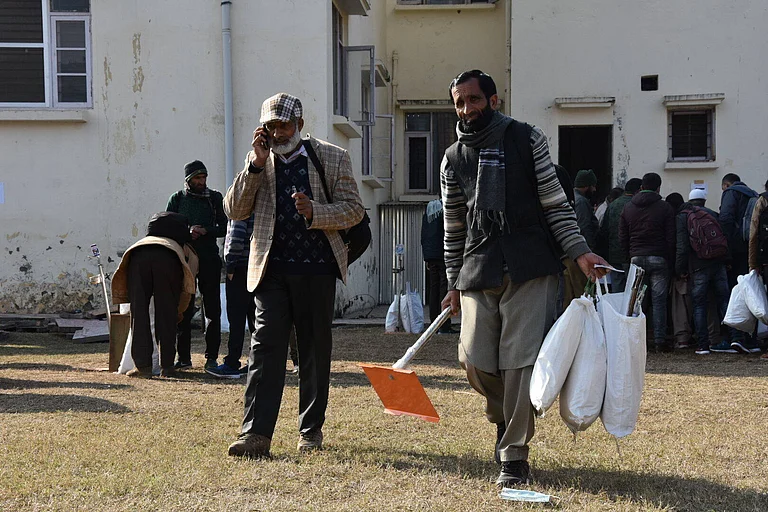After claiming for two years that the country is untouched by coronavirus, the North Korea last week announced the country is experiencing an "explosive" Covid-19 outbreak, leading its leader Kim Jong-Un to declare nationwide lockdowns.
On Friday, the country announced six deaths from an unidentified fever-causing illness "spreading explosively" and 3,50,000 infections. One of the six diseased tested positive for the Omicron variant of coronavirus.
On Monday, the figures jumped to 50 deaths and 1.2 million infections.
While the country has confirmed Covid-19 outbreak and deaths, most of the deaths are attributed to fever and not explicity as coronavirus-related, likely because of a lack of testing capability in the country that's sanctioned and isolated from the outside world.
Experts have, however, concluded that the fever-causing illness — coinciding with coronavirus confirmation — to be Covid-19.
Jacob Lee, an infectious diseases expert in South Korea, told VICE World News, "It’s not likely to be other viruses. In the current situation hundreds of thousands of people have symptoms. There is no other respiratory virus that can be prevalent right now other than Covid-19.”
Here we explain why this outbreak is concerning, how North Korea is dealing with it, and how the situation is expected to pan out.
How concerning is the outbreak?
With no vaccination and very poor healthcare system, the odds are stacked against North Koreans.
A Johns Hopkins University study ranked North Korea 193rd out of 195 countries in their capability to deal with epidemics, as per a Fortune report.
The Fortune cited a United Nations report and noted that poverty and food shortages are believed to be widespread North Korea, where at least 43 per cent people suffer from malnutrition, and limited access to healthcare, clean water, and sanitation were already putting children at risk of dying from curable diseases in a pre-pandemic world.
The North Korean government last year rejected the offer of millions of coronavirus vaccines under the UN Covax initiative. Some have commented that the reason for rejection was that it would mean UN monitoring the country's vaccination program as well as the coronavirus situation which the ultra-secretive North Korean state would not want.
How is North Korea treating coronavirus patients?
In the absense of vaccines and advanced coronavirus treatments, North Korea is where most of the world was in early 2020.
The country is resorting to anti-biotics, over the counter medicines, and home remedies to treat patients.
A Reuters report cited state media as advising people to treat Covid-19 and its symptoms by using painkillers and fever-reducers such as ibuprofen, amoxicillin, and other antibiotics. Antibiotics do not fight viruses but are sometimes prescribed for secondary bacterial infections that Covid-19 might trigger.
Traditional medicines and home remedies like gargles are also shared on state media, as per Reuters.
The Reuters report noted that North Korea has a history of using scientifically unproven treatments. It reported, "While not claiming that antibiotics and home remedies will eliminate COVID, North Korea has a long history of developing scientifically unproven treatments, including an injection made from ginseng grown in rare earth elements it claimed could cure everything from AIDS to impotence."
What does rare admission of outbreak mean?
The admission of an outbreak has also been understood as a sign of North Korea seeking international aid as its own capabilities are limited and the country is not believed to have conducted any coronavirus vaccination so far. Its healthcare system is also among the poorest in the world.
China last week said it's ready to support the country with vaccines.
"As comrades, neighbors and friends, China stands ready to provide full support to the DPRK in its fight against the epidemic," said Zhao Lijian, China's foreign ministry spokesperson.
North Korean leader Kim Jong-Un has slammed lockdowns but zero-Covid policies have not worked out, not even in China. Therefore, in the absence of medicines or vaccination, it's very uncertain how the situation will evolve.


























